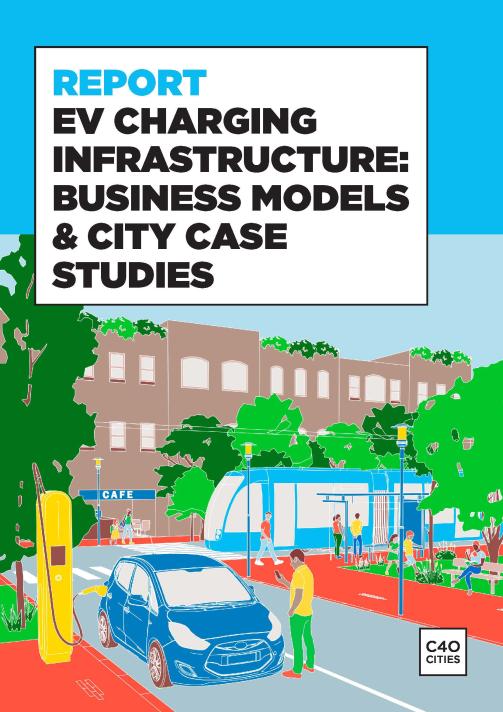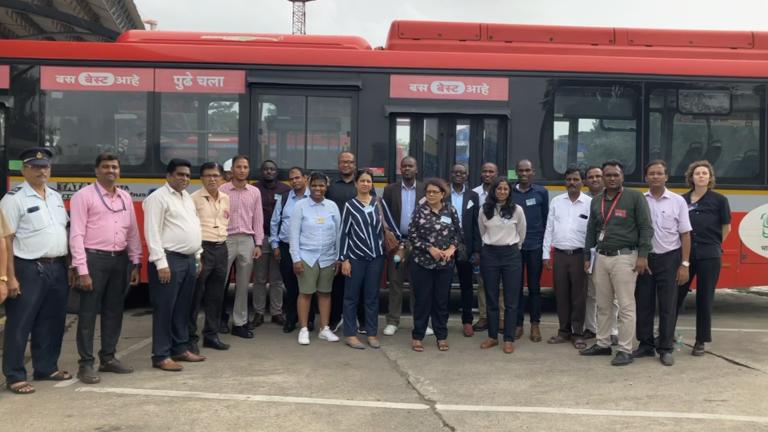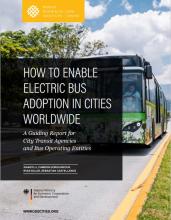
EV charging infrastructure: business models and city case studies
Drawing from seven city case studies, this report examines the combination of funding and financial resources required to invest in electric vehicle charging infrastructure.
Sales of electric vehicles (EVs) doubled from 2020 to 2021, to a record of 6.6 million EVs circulating worldwide. The surge in electric vehicles necessitates the swift development of infrastructure for EV charging in urban areas; however, few cities have policies or strategies for the deployment of electric charging stations in an equitable, economical, and sustainable manner. The need for significant investment to facilitate this fast expansion also poses a challenge for many cities at all stages of transport electrification.
This report from C40 Cities examines the combination of funding and financial resources required to invest in electric vehicle charging infrastructure (EVCI) and the stakeholders involved and how they interact to provide public charging solutions in cities. The study investigates the successes and failures of EVCI deployment in seven exemplary cities, offering an overview of their funding, financing mechanisms, and business models.

Building Capacity to Scale Zero-Emission Buses
The Peer-to-Peer Exchange in Mumbai engaged representatives from Rwanda, Kigali, Mauritius and Durban in hands-on learning about deploying zero-emission buses.

How to Enable Electric Bus Adoption in Cities Worldwide
This report provides step-by-step guidance to transit agencies to establish and achieve electric bus adoption targets using concrete and diverse real-world experiences.

UrbanShift Annual Report 2024-2025
UrbanShift's final Annual Report spans an impactful year of over 30 events and major progress across our network of 23 cities.

What's Next for the UrbanShift Network?
As the UrbanShift Global Platform concludes, the next phase of the GEF Sustainable Cities Impact Program will build on the momentum and progress for sustainable and resilient cities.
